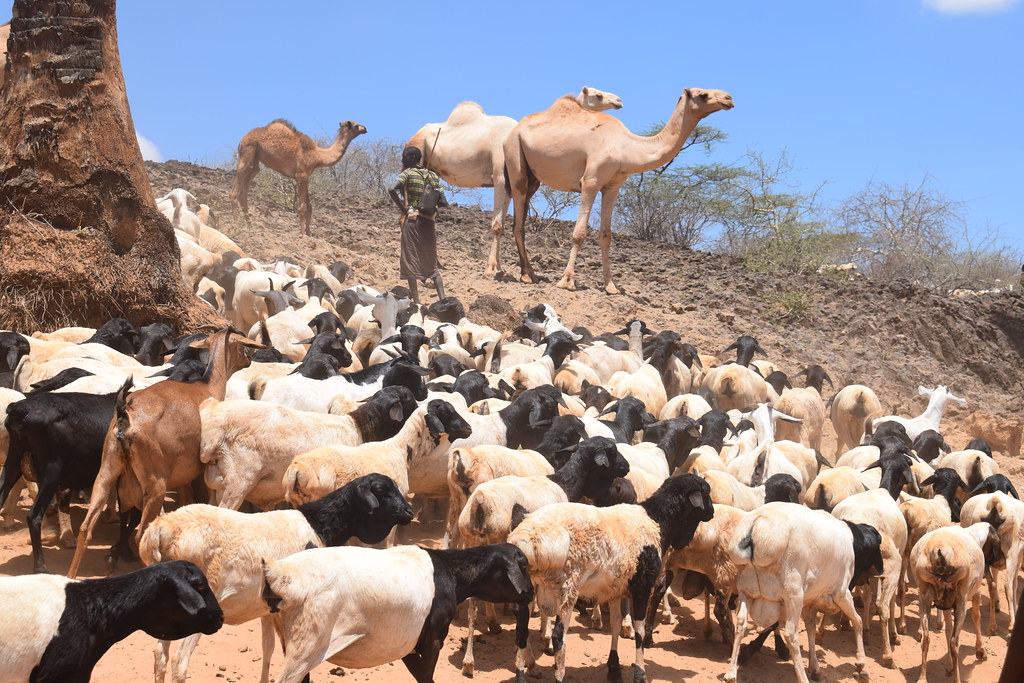
By Sora Halake
Horn of Africa service.
As the spread of coronavirus hit Africa, the pastoralist communities have suffered lost opportunities and incomes.
Families that depend on cattle, goats, sheep, and camels for livelihoods and move from place to place seeking water and pasture, have been hit hard by the virus as their movement is now restricted.
The pastoralists move from remote areas and take various products, including milk and the livestock, to places as far as Nairobi, but the restricted movement imposed by the government has now confined them to their homes.
Loko Guyo, 35, said she had heard of the deaths and scare visited upon the country by the virus, and she feared venturing out of the village.
“Everybody in my village is fearful because we have been told that the disease is in the air we breathe. Even going to the market is no longer a comfortable experience,” she said.
Guyo helps her family by selling more than 10 liters of camel and cow milk weekly.
“We had to pay extra for the cost of transportation,” Guyo said. “Prices are uncertain. Weather can be unpredictable, and demand is not always as high as you might think. A sudden outbreak like this pandemic can complicate our lives.”
Korbessa, a small town east of Isiolo, is three hours from Nairobi. Seventy percent of its residents depend on animals, said Tahira Shariff, a doctoral candidate at the University of Sussex in Britain.
Korbessa is one of Shariff’s four research sites where she is focusing on pastoralism and life amid the COVID-19 pandemic.
“If they can’t sell their milk and other dairy products, they will face serious challenges in daily life,” Shariff said.
The economic costs of COVID-19 have already been harsher than the direct impact on these moving communities, Shariff said.
If they become constrained by restrictions, their livelihoods will be destroyed, Qu Dongyu, director general of the Food and Agriculture Organization, opined.
“Governments, even as they prioritize public health goals, must do everything in their power to keep trade routes open and supply chains alive,” he said.
“The pastoralist economy is based on movements,” Prof Gufu Oba of the Norwegian University of Life Sciences’reckoned.
States should help essential but most vulnerable African communities during this pandemic, said Gufu.
Studies show pastoralists are among the most vulnerable people living in a region of about 20 million people in need of food security.
Reports show that a small-scale milk trader like Guyo earns on average about $110 a month.
The pandemic has impacted both domestic and international markets. The traditional flooding of animals — taking animals to market on busy routes — from the Horn of Africa to the Arabian Peninsula, involves millions of animals, which is likely to be problematic, said Michele Nori, a Wageningen University researcher in the Netherlands.
The majority of pastoralists live in extreme poverty, the African Commission on Human and Peoples’ Rights said in a recent statement.
During difficult times countries give tax breaks and other social benefits to their urban citizens said Shariff. “Pastoralist communities shouldn’t be left out just because they live in remote areas,” she said.




